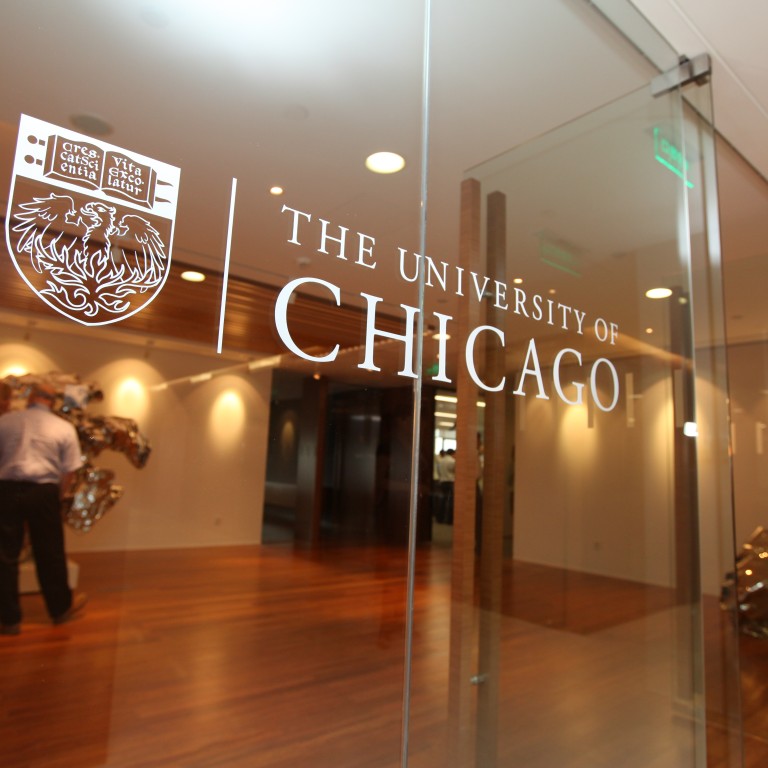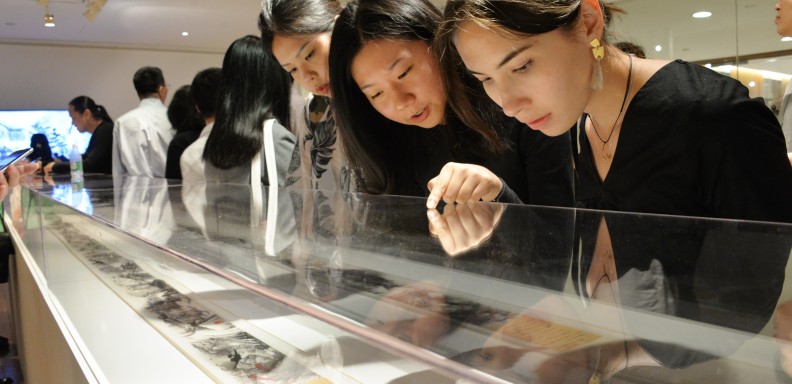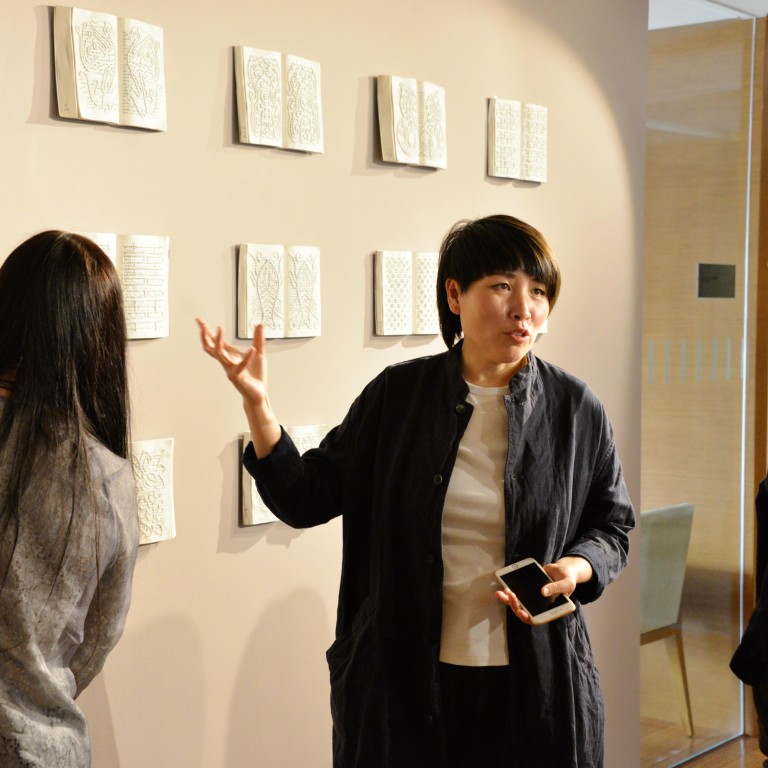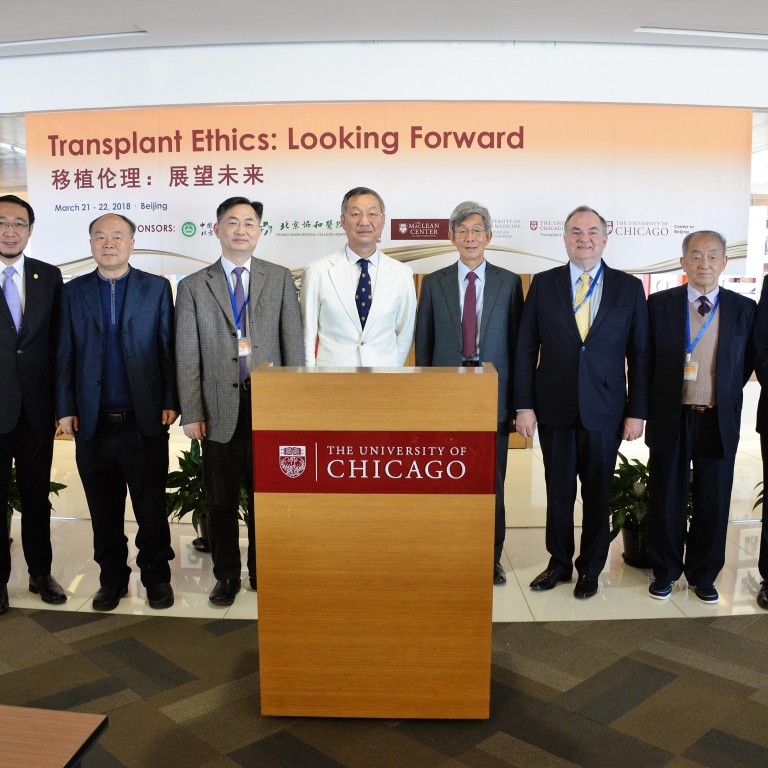The funds were to support 4-5 Pritzker School of Medicine 4th year students to experience health care in a global setting – specifically Beijing. We were able to get PSOM approval for the 4th year elective and 4 students were able to fit the experience into their schedules ( more were interested but with short timetables 4 were able to go). In the future the elective has already been approved so the timetables will not be as rushed. In addition to the experience at PUMC/H all 4 students were able to attend and participate in two clinical ethics conferences organized by the U of C and Peking University Health Science Center (also thanks to PGFA awards). PUMC/H were able to accommodate the 1st request for our students in terms of their desired electives: Orthopedics; Psychiatry, Urology, General Surgery – Hepatobiliary Surgery. All 4 students described their experience as “excellent” and would highly recommend it to other 4th year students. Some excerpts from the each student’s report on their experience –
Orthopedics - My recent global health experience at Peking Union Medical College Hospital (PUMCH) in Beijing, China was an enriching and transformative journey, both professionally and personally. During my two-week rotation in the orthopedic surgery department, I had the privilege of working alongside an exceptional team of attendings from various sub-specialties, including spine surgery, joint replacement, trauma, and sports. The exposure to such a wide range of expertise provided me with a comprehensive view of orthopedic care and allowed me to observe different surgical techniques and treatment approaches that are both similar to the United States and unique to China.
One of the most remarkable aspects of this experience was witnessing the blend of traditional Chinese medical practices with modern orthopedic surgery. It was fascinating to see how cultural and historical contexts influence medical practices and patient care. This holistic approach to patient care was eye-opening and highlighted the importance of considering cultural dimensions in medical practice. Moreover, the interdisciplinary collaboration within the department was impressive. The attendings were not only experts in their fields but also passionate educators who were eager to share their knowledge. I participated in numerous case discussions and grand rounds where complex cases were analyzed from multiple perspectives. These sessions were invaluable, as they enhanced my critical thinking and broadened my understanding of global orthopedic challenges and solutions.
Beyond the clinical and educational aspects, my time at PUMC also offered rich cultural experiences. Engaging with the local staff and patients, exploring Beijing’s historical sites, and immersing myself in the local culture deepened my appreciation for the global interconnectedness of the medical community. It reinforced the idea that despite geographical and cultural differences, the ultimate goal of improving patient care is similar across borders.
In conclusion, my global health experience at PUMCH was a remarkable journey of learning and growth. It underscored the value of international collaboration in medicine and the importance of embracing diverse medical practices and perspectives. This experience not only enhanced my clinical skills and knowledge but also enriched my understanding of global health, preparing me to contribute more effectively to the global medical community. I am grateful for this opportunity which has broadened my horizon and pushed me to continue working as a global health practitioner in my future as an orthopedic surgeon.
Urology – Overall, this elective has been my most memorable and insightful course at Pritzker so far. As a brief summary of my experience, following our medical and surgical ethics conferences, I began my urology rotation on Monday, May 13th, with a short orientation and tour of the hospital. I was then introduced to my preceptor for the rotation, Dr. Fan, a urology fellow at PUMCH. That Monday, we spent the entire day in the operating room with Dr. Xie, completing three robotic partial nephrectomies, two robotic radical nephrectomies, and a partial penectomy. Dr. Fan took an active role in teaching, thoroughly explaining each patient’s case and the surgical rationale. We then rounded on all the inpatients in the evening.
Although Monday was mostly observational, Dr. Fan mentioned that he would be working at Beijing Hepingli Hospital the next day on a few general urology cases. On Tuesday, I joined him and actively participated, assisting with several laser lithotripsy procedures for urolithiasis and transurethral resections of the prostate for benign prostatic hyperplasia. After operating throughout the day, we returned to PUMCH for evening rounds.
Wednesday morning began with inpatient rounds and two partial nephrectomies. Later that afternoon, Dr. Fan invited me to present my urology research at Grand Rounds, which I delivered after adding some Mandarin Chinese to my PowerPoint slides. That evening, we joined the urology department at a local Beichen restaurant for a lecture by a visiting professor.
Thursday was a full clinic day. I spent the morning observing the cystoscopy clinic and the afternoon seeing patients in the clinic until evening rounds. Friday continued with morning clinic, but I left at mid-day to attend a lunch and lecture with fellow PUMC students, faculty, and staff. The following week, we performed several robotic cases on Monday and Tuesday, but I was dismissed early on Tuesday to attend a debrief session on my experience with PUMC faculty and staff before heading to Beijing airport for my return flight to Chicago.
Psychiatry – Even with limited Mandarin I could appreciate the differences in psychiatry - PUMCH much higher volume with a a “ take ticket and wait to be called” approach like the DMV, each individual is allotted 15-20 mins thog=ugh that can stretch as needed. If stumped on how to treat they go to “uptodate” – the same web based resource that is used in the US. The student read Arthur Kleinman’s Deep China: The Moral Life of the Person. The head of the department had worked with Kleinman in the past. Valued the experience of meeting other medical students – compare experiences, share meals, and deepen cross cultural exchange. He arranged a trip to a traditonal Chinese medicine hospital.
General Surgery – Hepatobiliary surgery – Differences from US system - Nurses had their own team rounds. Morning report was done with all attendings, residents, and nurses in the same workroom. Multiple patients (up to 3) occupied the same patient rooms sometimes. VIP or international services gave certain patients priority on the operating schedule. No time-out is done before a surgery starts ( a universal quality and safety metric in US hospitals). CT scans are often examined with a physical film. Patients were more concerned or anxious about losing a gallbladder than in the West, which I think is a cultural difference. I found myself in familiar scenarios when compared with my third-year clinical rotations, such as AM and PM team rounds or working in the workroom during downtime albeit with a different atmosphere. Most of the time, the teams seemed more relaxed. Both teams I was part of had time to take me out to lunch on certain days for over an hour. There was not as much need for pre-rounds, as everyone met in the same room for morning report. I found it easier to approach attendings in this hospital environment, even the more senior ones. Overall, I loved my experience here at PUMC. Everyone was extremely. Faculty are still rigorously tough but often friendly with residents, and I found that to make for a healthy environment.
This rotation was both incredibly busy and enlightening, and provided me with deeper insights into the Chinese healthcare system and its stark contrast with America. I have several key takeaways from my experience.
First, the inpatient admission process in China typically involves patients being admitted to the hospital two or three days before surgery. This practice is more culturally rooted than medically necessary. Due to lower hospitalization costs in China, patient rooms often accommodate 3 or 6 individuals, maximizing space usage. This setup allows physicians to monitor lab results and complete necessary imaging just before surgery. In contrast, in the American healthcare system, patients usually arrive on the day of their surgery and are discharged as quickly as possible to cut costs, as hospital stays in the U.S. are prohibitively expensive.
Second, Chinese patients generally seem more informed and proactive about their medical care compared to their American counterparts. Patients routinely bring their lab and imaging reports to consultations and show a preference for in-person visits over Telehealth services. Clinics are busy, and rather than assigning exact appointment times, patients are given a time range (ex. 9-11 AM) and placed in a queue. This system operates without the support of mid-level providers like nurse practitioners or physician assistants, as these roles are not common in China.
Lastly, there is an impressive integration of Western and traditional Chinese medicine within the healthcare system. Despite a lack of strong evidence supporting some traditional practices, physicians remain open to incorporating traditional Chinese medicine into their care plans. This approach not only honors the cultural beliefs of patients but also respects their preferences in a culturally sensitive manner.



